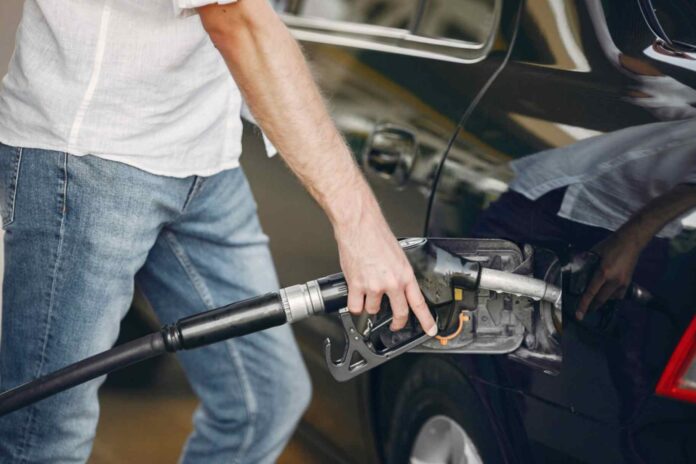In today’s world, where gas prices seem to be on a never-ending roller coaster ride, maintaining fuel efficiency is a top priority for car owners. After all, who doesn’t want to save money and reduce their carbon footprint at the same time? While buying a fuel-efficient vehicle is a great start, there are numerous strategies you can implement to maximize your car’s fuel economy and keep more cash in your pocket.
Key Takeaways
- Regular maintenance, such as oil changes, tire rotations, and air filter replacements, plays a crucial role in maintaining optimal fuel efficiency.
- Smooth driving habits, such as avoiding rapid acceleration and braking, as well as maintaining a consistent speed and minimizing idling, can significantly improve your car’s gas mileage.
- Optimizing your vehicle’s performance by ensuring proper tire pressure, considering aerodynamic enhancements, and using fuel-efficient tires can further boost fuel efficiency.
- Additional tips, like using cruise control, avoiding unnecessary weight, and choosing the right motor oil, can also contribute to better gas mileage.
Engaging Opening Paragraph: Let’s be real – we’ve all been there, wincing at the pump as we watch the dollars rapidly disappear while filling up our gas tanks. It’s a harsh reality that hits us right in the wallet. But what if we told you that there are simple strategies you can implement to stretch every drop of fuel and maximize your car’s fuel efficiency? That’s right, by making a few tweaks to your driving habits and staying on top of regular maintenance, you can save yourself a pretty penny (or more!) at the gas station.
Regular Maintenance for Fuel Efficiency
- Importance of Regular Maintenance: Regular maintenance isn’t just about keeping your car running smoothly – it’s also a game-changer when it comes to fuel efficiency. Neglecting routine maintenance can lead to unnecessary wear and tear, which can cause your engine to work harder and guzzle more gas.
- Maintenance Tasks: Several maintenance tasks can directly impact your car’s fuel efficiency.
- Oil Changes: Regularly changing your engine oil ensures that it’s clean and can properly lubricate your engine’s components, reducing friction and increasing fuel efficiency.
- Tire Rotations: Properly rotated tires wear evenly, improving fuel efficiency by reducing rolling resistance.
- Air Filter Replacements: A clogged air filter can restrict airflow to your engine, causing it to work harder and consume more fuel. Replacing it regularly can help maintain optimal air flow and fuel efficiency.
Driving Habits for Fuel Efficiency
While regular maintenance is crucial, your driving habits also play a significant role in determining your car’s fuel efficiency. Here are a few tips to help you make the most out of every gallon:
- Smooth Driving Habits: Jackrabbit starts and sudden braking not only wear out your brakes and tires faster but also waste fuel. Accelerating and braking smoothly can improve your fuel efficiency by up to 33%, according to the U.S. Department of Energy.
- Maintaining a Consistent Speed: Driving at a consistent speed, within the posted speed limits, can significantly improve your gas mileage. Every time you hit the gas pedal, your engine has to work harder, burning more fuel in the process.
- Avoiding Idling: Idling gets you nowhere, quite literally. An idling engine can consume up to half a gallon of fuel per hour, according to the Environmental Protection Agency (EPA). Instead of letting your engine idle for extended periods, it’s better to turn it off if you’re going to be stopped for more than 30 seconds (unless in traffic, of course).
Optimizing Your Vehicle’s Performance
While driving habits and regular maintenance are essential, there are a few additional steps you can take to optimize your vehicle’s performance and boost fuel efficiency:
- Proper Tire Pressure: Underinflated tires can increase rolling resistance, causing your engine to work harder and consume more fuel. According to the U.S. Department of Energy, properly inflated tires can improve your gas mileage by up to 3.3%.
- Aerodynamic Enhancements: Believe it or not, aerodynamic enhancements like spoilers and air dams can help reduce wind resistance and improve fuel efficiency, especially at higher speeds. However, it’s essential to strike a balance between aerodynamics and added weight, as excessive weight can negate any fuel-saving benefits.
- Fuel-Efficient Tires: Investing in fuel-efficient tires can also contribute to better gas mileage. These tires are designed with advanced compounds and tread patterns that reduce rolling resistance, resulting in improved fuel efficiency.
| Maintenance Task | Potential Fuel Savings |
|---|---|
| Regular Oil Changes | Up to 2% |
| Tire Rotations | Up to 3.3% |
| Air Filter Replacements | Up to 10% |
| Proper Tire Pressure | Up to 3.3% |
Additional Tips for Maintaining Car Fuel Efficiency
Still looking for ways to squeeze out every last mile from your gas tank? Here are a few more tips to consider:
- Using Cruise Control: Cruise control is your friend when it comes to maintaining a consistent speed, especially on long highway drives. By minimizing speed fluctuations, you can significantly improve your fuel efficiency.
- Avoiding Unnecessary Weight: Extra weight in your vehicle, whether it’s cargo, equipment, or even passengers, can increase your fuel consumption. Lightening your load can help your engine work more efficiently and improve your gas mileage.
- Using the Right Motor Oil: Using the correct grade of motor oil recommended by your vehicle manufacturer can also contribute to better fuel efficiency. The wrong oil can increase friction and cause your engine to work harder, resulting in higher fuel consumption.
Conclusion
In today’s world, where gas prices seem to be on an endless roller coaster ride, maintaining fuel efficiency is more important than ever. By implementing the strategies outlined in this article, you can take control of your fuel consumption and keep more cash in your pocket.
From regular maintenance tasks like oil changes and tire rotations to smooth driving habits and optimizing your vehicle’s performance, every little step you take can add up to significant fuel savings. And let’s not forget the added bonus of reducing your carbon footprint and contributing to a greener planet.
So, the next time you find yourself at the gas station, instead of wincing at the pump, you can smile knowing that you’re doing your part to maximize your car’s fuel efficiency. It’s a win-win situation for your wallet and the environment!








